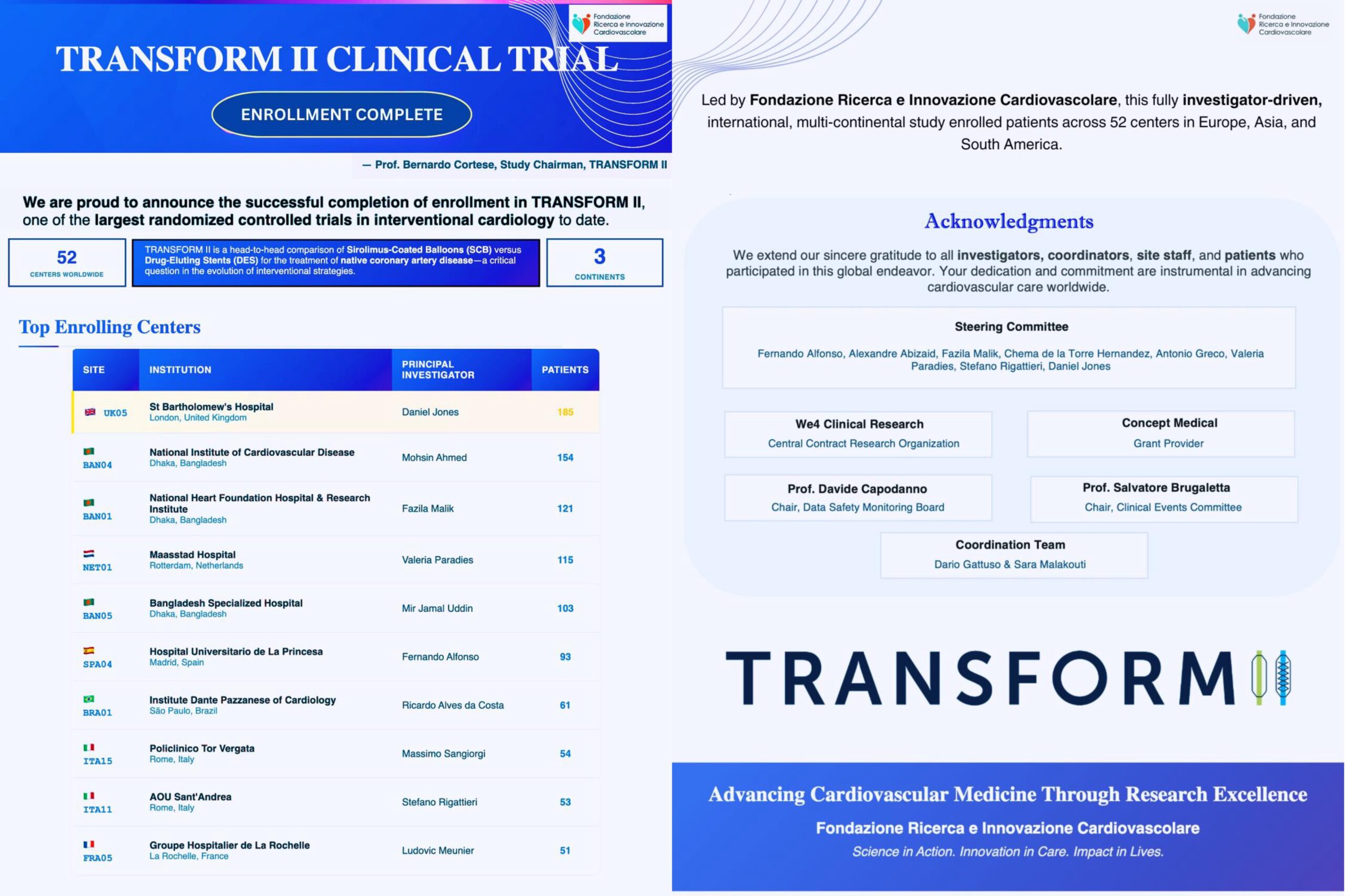IncidenCe and predictOrs of heaRt fAiLure after acute coronarY Syndrome: The CORALYS registry
Previous studies investigating predictors of heart failure (HF) after acute coronary syndrome (ACS) were mostly conducted during the fibrinolytic era or only analyzed baseline characteristics and diagnoses prior to admission. CORALYS trial is a multicenter, retrospective, observational registry that includes consecutive patients treated with percutaneous coronary intervention (PCI) for ACS. With a sample size of 14,699 patients, this study revealed that the incidence of HF hospitalizations among patients treated with PCI for ACS is not negligible and is associated with a detrimental impact on patients’ long-term prognosis.
DCBs as an adjuvant tool to DES for very complex coronary lesions
Drug eluting stents (DES) have greatly improved the field of interventional cardiology, making them the go-to option for percutaneous coronary interventions (PCI). However, as with any medical technology, there are limitations that need to be addressed. One potential solution is a hybrid strategy that combines the use of a DES and a drug-coated balloon (DCB) to reduce the amount of metal implanted and decrease the risk of in-stent restenosis (ISR) and stent thrombosis in highly complex lesions. This review aims to thoroughly investigate the current clinical evidence for this approach.
Drug-coated balloon for the management of coronary chronic total occlusions
Despite advancements in technology and medical procedures, there is still a need for improved long-term outcomes in treating chronic total occlusions after percutaneous coronary intervention. While the use of new-generation drug-eluting stents has been optimized with the help of coronary imaging guidance, the issue of stenting failure remains a major concern. This paper explores the potential benefits of using drug-coated balloons as an alternative therapeutic option for treating chronic total occlusions, and suggests a hybrid treatment approach that combines the use of both drug-coated balloons and drug-eluting stents for optimal results.
Interview with Dr. Bernardo Cortese: Stenosis of the common trunk: pci or bypass?
This interview highlights papers addressing the need for updated studies and guidelines to determine the appropriate duration of dual antiplatelet therapy (DAPT) for patients with coronary stents. It also suggests that the risks and benefits of prolonged DAPT may vary for different patient characteristics and stent technologies. It also highlights the potential benefits of MV-TEER for patients with prior cardiac surgery and various causes of mitral regurgitation (MR).
Prediction of All-Cause Mortality Following Percutaneous Coronary Intervention in Bifurcation Lesions Using Machine Learning Algorithms
The use of machine learning (ML) algorithms in predicting outcomes following coronary bifurcation percutaneous coronary intervention (PCI) is a promising approach to meet the unmet clinical need for accurate prognosis stratification. This study aimed to create an ML-based model that incorporates clinical, anatomical, and procedural factors to predict the risk of all-cause mortality after modern bifurcation PCI.


